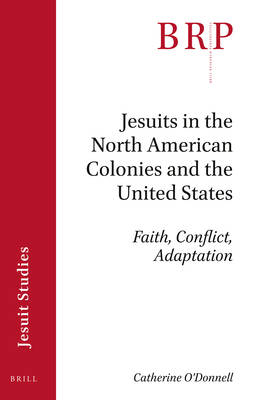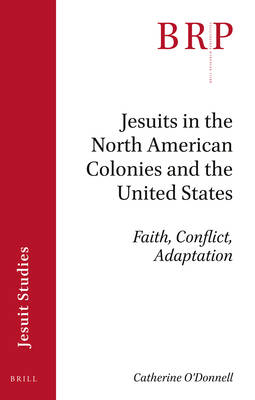
- Afhalen na 1 uur in een winkel met voorraad
- Gratis thuislevering in België vanaf € 30
- Ruim aanbod met 7 miljoen producten
- Afhalen na 1 uur in een winkel met voorraad
- Gratis thuislevering in België vanaf € 30
- Ruim aanbod met 7 miljoen producten
Zoeken
Jesuits in the North American Colonies and the United States
Faith, Conflict, Adaptation
Catherine O'Donnell
€ 143,45
+ 286 punten
Omschrijving
From Eusebio Kino to Daniel Berrigan, and from colonial New England to contemporary Seattle, Jesuits have built and disrupted institutions in ways that have fundamentally shaped the Catholic Church and American society. As Catherine O'Donnell demonstrates, Jesuits in French, Spanish, and British colonies were both evangelists and agents of empire. John Carroll envisioned an American church integrated with Protestant neighbors during the early years of the republic; nineteenth-century Jesuits, many of them immigrants, rejected Carroll's ethos and created a distinct Catholic infrastructure of schools, colleges, and allegiances. The twentieth century involved Jesuits first in American war efforts and papal critiques of modernity, and then (in accord with the leadership of John Courtney Murray and Pedro Arrupe) in a rethinking of their relationship to modernity, to other faiths, and to earthly injustice. O'Donnell's narrative concludes with a brief discussion of Jesuits' declining numbers, as well as their response to their slaveholding past and involvement in clerical sexual abuse.
Specificaties
Betrokkenen
- Auteur(s):
- Uitgeverij:
Inhoud
- Aantal bladzijden:
- 120
- Taal:
- Engels
- Reeks:
Eigenschappen
- Productcode (EAN):
- 9789004428102
- Verschijningsdatum:
- 1/05/2020
- Uitvoering:
- Paperback
- Formaat:
- Trade paperback (VS)
- Afmetingen:
- 155 mm x 235 mm
- Gewicht:
- 190 g

Alleen bij Standaard Boekhandel
+ 286 punten op je klantenkaart van Standaard Boekhandel
Beoordelingen
We publiceren alleen reviews die voldoen aan de voorwaarden voor reviews. Bekijk onze voorwaarden voor reviews.











